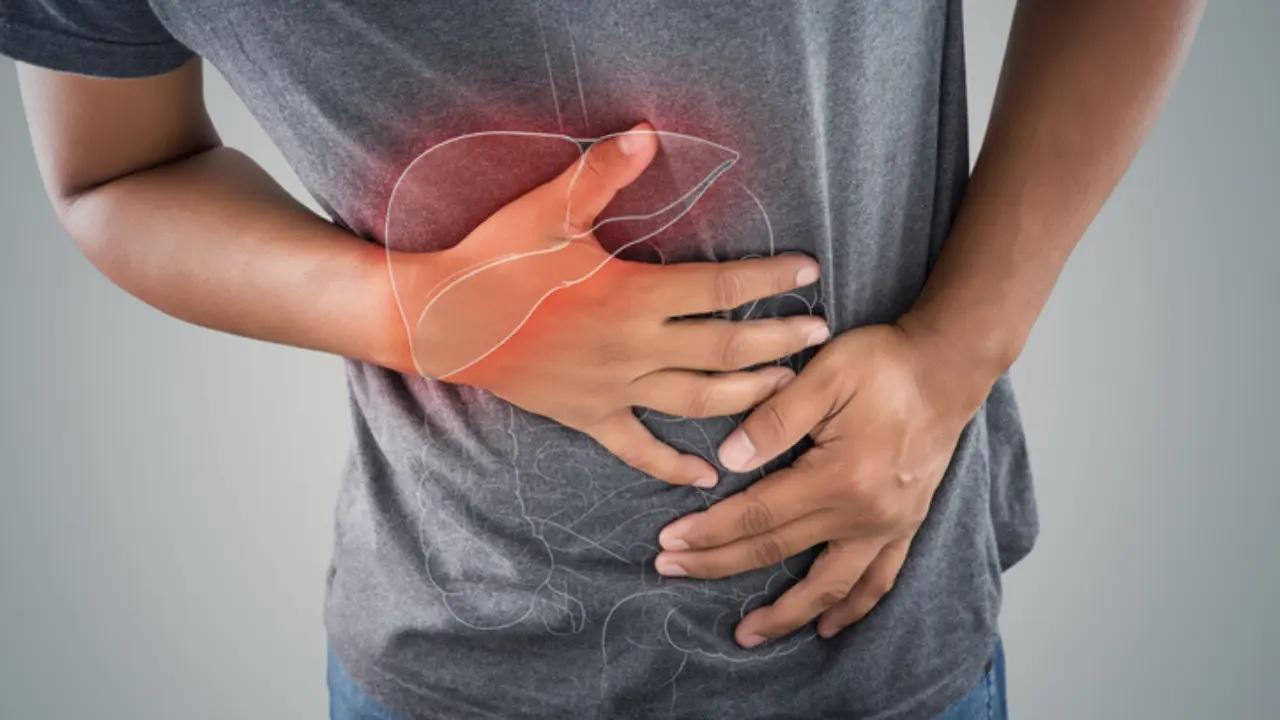Fatty liver disease develops due to the accumulation of extra fat in the liver. It is the need of the hour to improve your liver health by taking some precautionary measures. Health expert explains causes, symptoms and treatment of fatty liver disease

Ensure you go for a regular liver health screening to stay aware and seek timely treatment if signs of fatty liver start to show up. Photo Courtesy: iStock
Liver health is often ignored by many. A large number of people are detected with fatty liver disease. To seek timely treatment and improve of life, Dr Vikram Raut, director- Liver transplantation and HPB surgery, Medicover Hospitals, Navi Mumbai explains to us the red flags of fatty liver disease.
The liver performs some vital functions. It helps to produce bile that aids in digestion, stores iron, makes protein for the body and is responsible for converting nutrients into energy. There are various liver problems that can give a tough time to an individual and cause pain. One of the common problems that one experiences is fatty liver disease.
ADVERTISEMENT
Fatty liver disease develops due to the accumulation of extra fat in the liver. Most people will exhibit no signs and symptoms, and it may not cause any fatal problems. For some though, it can lead to liver damage. If you have a fatty liver whose symptoms worsen, it can cause the liver to well, lead to inflammation and damage the organ leading to cirrhosis. When the liver is damaged beyond repair, the only option is a liver transplant.
What leads to liver disease?
Raut says, there are two forms of fatty liver disease
1. Alcohol-related fatty liver disease
2. Non-alcoholic fatty liver disease (NAFLD)
Certain factors such as smoking, obesity, diabetes, insulin resistance, high blood pressure, high cholesterol and high triglyceride levels and sleep apnea can raise the risk of liver disease.
Symptoms
Common symptoms include constant abdominal pain with swelling, nausea, poor appetite, jaundice, tiredness, and weakness. Unexplained weight loss is also a matter of concern and shouldn’t be ignored. Other symptoms are bleeding, bruising and confusion. Raut says you must not delay treatment once you notice the symptoms. It is natural to worry but the doctor says one must not panic and consult a medical expert who will advise you about the appropriate treatment.
Treatment
It is the need of the hour to improve your liver health by taking some precautionary measures. Restrict the consumption of alcohol, maintain a healthy weight, eat a well-balanced diet consisting of fresh fruits and vegetables, avoid the intake of junk and processed food, cut down on spicy, oily, and canned food, take medication to control diabetes, high blood pressure, and high cholesterol levels, exercise without fail for at least five times a week for 30 minutes. Also, ensure you go for a regular liver health screening to stay aware and seek timely treatment if signs start to show up. This way, you can avoid pushing your health condition to a critical stage.
Also Read: Medics share tips to protect yourself from falling sick due to rapid weather changes
 Subscribe today by clicking the link and stay updated with the latest news!" Click here!
Subscribe today by clicking the link and stay updated with the latest news!" Click here!







